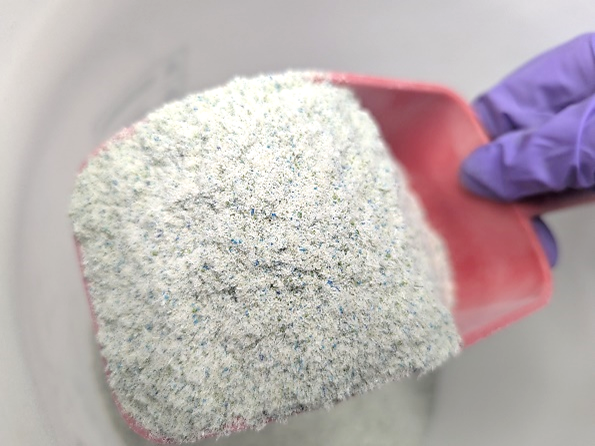
He / Him
MSc candidate
Project: Optimization of the sieving process used in the mechanical recycling of waste glass fibre composite
LinkedIn zijian.wang [at] mail.mcgill.ca (Mail)
Supervisor: Larry Lessard

Recent studies have shown that in the coming decades, immense quantities of fibreglass waste will accumulate in landfills, especially due to the decommissioning of large-scale structures such as wind turbine blades. Because of the irreversible cross-linked structure of thermosetting polymers, recycling of these blades has become a key interest in the field of composite sustainability. Although many chemical and thermal methods have shown success in recovering useful fibres from waste glass fibre composite, much of the methodology still requires time- and energy-intensive processes which are not fit for addressing the waste at an industrial level. To do so, a mechanical approach to recycling is proposed instead to process waste fibreglass as it is the only approach to have reached industrial maturity. Shredding, milling, and sieving will be used to extract useful fibre fractions from waste glass fibre composite to be valorized in molded and extruded applications.
This research project aims to investigate the performance of the sieving process when used to extract useful fibres from shredded and ground fibreglass waste. The objective of this study is to maximize the sieving performance in terms of the percent yield of useful fibres, the rate at which useful fibres are extracted, and the desired distribution of fibre lengths.
This research will employ Taguchi arrays to experimentally explore various process parameters rapidly and Grey Relational Analysis to optimize for the given multi-objective problem. The study will focus on the sieving step of the larger mechanical recycling process used to extract useful fibres. Sieve fractions will be weighed to generate cumulative undersize curves while fibre lengths gathered through optical microscopy will be used to generate fibre length distributions.
The project is expected to yield insights into the feasibility of the grinding and sieving process in material extraction when applied to shredded fibreglass composite waste, contributing to the development of scalable and sustainable solutions to managing composite waste at the industrial scale.
